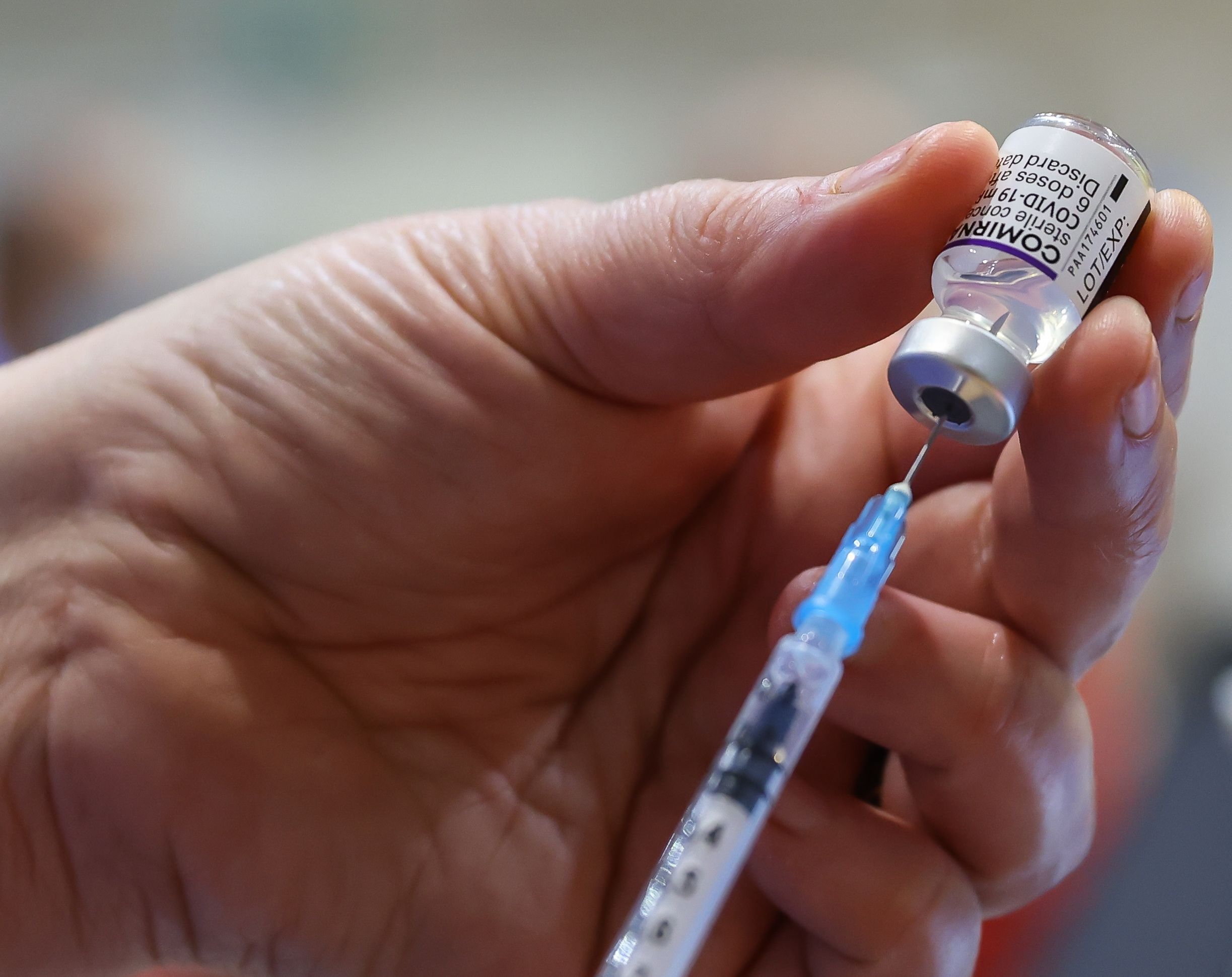New COVID booster likely to become a yearly shot


A free daily email with the biggest news stories of the day – and the best features from TheWeek.com
You are now subscribed
Your newsletter sign-up was successful
The White House's COVID-19 Response Coordinator, Dr. Ashish Jha, announced that the FDA has approved updated versions of the Moderna and Pfizer-BioNTech vaccines that target both the original COVID virus and the two omicron subvariants currently causing the most infections.
During a COVID-19 Response Team press briefing on Tuesday at the White House, Jha described the boosters as "an important shift in our fight against the virus." The new boosters are available now.
NPR reports that COVID-19 vaccination will likely become a yearly vaccine similar to the flu vaccine. Also like the flu shot, the new vaccines can be adjusted every year to account for the dominant variants at the time. At the briefing, Jha called for people 12 and over to receive the vaccine. Dr. Anthony Fauci, also present at the press briefing, specified that some more vulnerable groups will likely still require more frequent boosters.
The Week
Escape your echo chamber. Get the facts behind the news, plus analysis from multiple perspectives.

Sign up for The Week's Free Newsletters
From our morning news briefing to a weekly Good News Newsletter, get the best of The Week delivered directly to your inbox.
From our morning news briefing to a weekly Good News Newsletter, get the best of The Week delivered directly to your inbox.
The new booster will continue to be free of charge for now, however, due to uncertainty regarding Congress providing more emergency funds, it is likely to be the last free booster for those without insurance. Data shows that COVID-19 cases, hospitalizations, and deaths have trended downward over the past month, but there are still approximately 70,000 new cases and upwards of 400 deaths per day.
"Get your updated COVID-19 shot as soon as you are eligible in order to protect yourself, your family, and your community against COVID-19 this fall and winter," urged Fauci.
A free daily email with the biggest news stories of the day – and the best features from TheWeek.com
Devika Rao has worked as a staff writer at The Week since 2022, covering science, the environment, climate and business. She previously worked as a policy associate for a nonprofit organization advocating for environmental action from a business perspective.
-
 The 8 best TV shows of the 1960s
The 8 best TV shows of the 1960sThe standout shows of this decade take viewers from outer space to the Wild West
-
 Microdramas are booming
Microdramas are boomingUnder the radar Scroll to watch a whole movie
-
 The Olympic timekeepers keeping the Games on track
The Olympic timekeepers keeping the Games on trackUnder the Radar Swiss watchmaking giant Omega has been at the finish line of every Olympic Games for nearly 100 years
-
 A Nipah virus outbreak in India has brought back Covid-era surveillance
A Nipah virus outbreak in India has brought back Covid-era surveillanceUnder the radar The disease can spread through animals and humans
-
 Trump HHS slashes advised child vaccinations
Trump HHS slashes advised child vaccinationsSpeed Read In a widely condemned move, the CDC will now recommend that children get vaccinated against 11 communicable diseases, not 17
-
 Covid-19 mRNA vaccines could help fight cancer
Covid-19 mRNA vaccines could help fight cancerUnder the radar They boost the immune system
-
 FDA OKs generic abortion pill, riling the right
FDA OKs generic abortion pill, riling the rightSpeed Read The drug in question is a generic version of mifepristone, used to carry out two-thirds of US abortions
-
 The new Stratus Covid strain – and why it’s on the rise
The new Stratus Covid strain – and why it’s on the riseThe Explainer ‘No evidence’ new variant is more dangerous or that vaccines won’t work against it, say UK health experts
-
 RFK Jr. vaccine panel advises restricting MMRV shot
RFK Jr. vaccine panel advises restricting MMRV shotSpeed Read The committee voted to restrict access to a childhood vaccine against chickenpox
-
 Texas declares end to measles outbreak
Texas declares end to measles outbreakSpeed Read The vaccine-preventable disease is still spreading in neighboring states, Mexico and Canada
-
 RFK Jr. shuts down mRNA vaccine funding at agency
RFK Jr. shuts down mRNA vaccine funding at agencySpeed Read The decision canceled or modified 22 projects, primarily for work on vaccines and therapeutics for respiratory viruses
